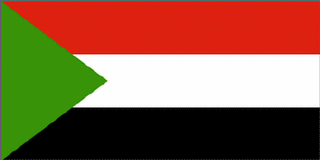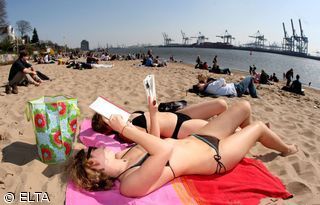Since 1993, the EU has provided the republic with 153 million euros (US $182 million) worth of humanitarian aid.
Published:
16 February 2005 y., Wednesday
Made up of an ethnic mix of Tajiks, Uzbeks and Russians, in 2004 Tajikistan experienced a further relative improvement in its overall humanitarian situation. International donor support remained strong - reaffirmed at a conference in London in February - but with a noticeable change of emphasis towards greater long-term development assistance to the mountainous nation and less on humanitarian aid.
Mirroring this trend, in May, the Humanitarian Aid Office of the European Commission (ECHO) reaffirmed its plans to scale back humanitarian activities in Tajikistan over the next three years. Since 1993, the EU has provided the republic with 153 million euros (US $182 million) worth of humanitarian aid.
But huge needs remain. Poverty has driven approximately 1 million Tajiks to seek better fortunes abroad, primarily in Russia. Over 83 percent of the population live below the national poverty line. A full 17 percent of the country's 6.3 million population is considered destitute. Food insecurity - particularly in rural areas - remains a key humanitarian issue.The education and healthcare systems continue to deteriorate, worsening the prospects for current and future generations.
The UN World Food Programme (WFP) continued to assist Tajikistan under its Protected Relief and Recovery Operation (PRRO), marking a transition from humanitarian relief to recovery and development in the country. "Tajikistan is a low-income and food-deficit country needing food assistance," the WFP country director, Ardag Meghdessian, told IRIN. "The shift of emphasis from relief to recovery indeed indicates increased stability in the country, as well as an improvement of the overall humanitarian situation," he said, adding that the devastating two-year drought in 2000 and 2001 was over.
Šaltinis:
irinnews.org
Copying, publishing, announcing any information from the News.lt portal without written permission of News.lt editorial office is prohibited.
The most popular articles
 'Play to Stop – Europe for climate' – a campaign giving young Europeans a chance to learn and talk about climate change and the environment.
more »
'Play to Stop – Europe for climate' – a campaign giving young Europeans a chance to learn and talk about climate change and the environment.
more »
 The Japanese city of Hiroshima held its annual peace memorial ceremony Thursday to remember the first atomic bomb ever used against human beings on the day 64 years ago.
more »
The Japanese city of Hiroshima held its annual peace memorial ceremony Thursday to remember the first atomic bomb ever used against human beings on the day 64 years ago.
more »
 Surfers attacked by sharks - a typical summer headline, in some parts of the world. But really it's the sharks who need protecting - over a third of all shark species living in the open seas are threatened with extinction.
more »
Surfers attacked by sharks - a typical summer headline, in some parts of the world. But really it's the sharks who need protecting - over a third of all shark species living in the open seas are threatened with extinction.
more »
 Lottery fever is sweeping Italy ahead of Tuesday's night's record draw.
more »
Lottery fever is sweeping Italy ahead of Tuesday's night's record draw.
more »
 The Sudanese women are protesting Lubna Hussein's sentence of 40 lashes for the crime of wearing trousers in public.
more »
The Sudanese women are protesting Lubna Hussein's sentence of 40 lashes for the crime of wearing trousers in public.
more »
 On August 4–6 Lithuanian, Latvian and Estonian members of the Baltic Battalion staff will exercise in the Lithuanian Grand Duke Algirdas Mechanised Infantry Battalion (Rukla, Jonava Distr.).
more »
On August 4–6 Lithuanian, Latvian and Estonian members of the Baltic Battalion staff will exercise in the Lithuanian Grand Duke Algirdas Mechanised Infantry Battalion (Rukla, Jonava Distr.).
more »
 Mobile exposition of needleworks of Afghan women, artefacts found by Lithuanian archaeologists in Ghowr and photo and video material produced by the Lithuanian-led PRT will be displayed in the major cities of Lithuania.
more »
Mobile exposition of needleworks of Afghan women, artefacts found by Lithuanian archaeologists in Ghowr and photo and video material produced by the Lithuanian-led PRT will be displayed in the major cities of Lithuania.
more »
 The killing of two teenagers by a gunman who opened fire on a gay meeting in Tel Aviv has shocked many Israelis.
more »
The killing of two teenagers by a gunman who opened fire on a gay meeting in Tel Aviv has shocked many Israelis.
more »
 Missing luggage still a big headache for passengers in Europe.
more »
Missing luggage still a big headache for passengers in Europe.
more »
 As Europeans hit the beaches in large numbers this summer the risk of skin disease is present if people expose them to too much sun and don't use adequate protection.
more »
As Europeans hit the beaches in large numbers this summer the risk of skin disease is present if people expose them to too much sun and don't use adequate protection.
more »